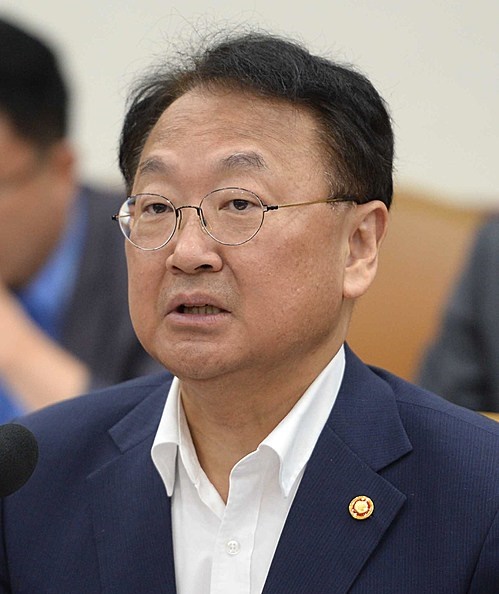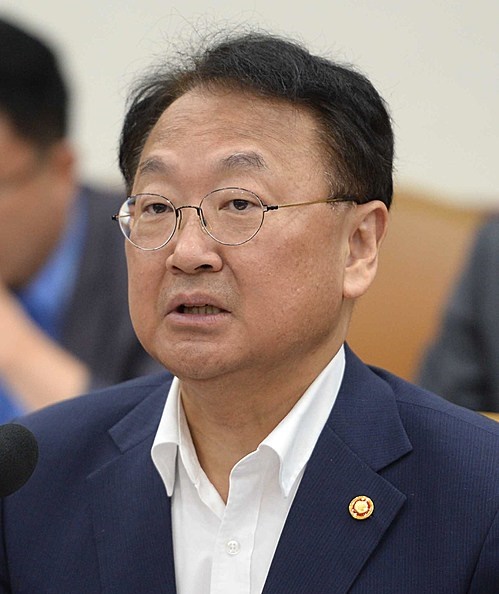 이미지 확대보기
이미지 확대보기이는 한국은행 전망치 2.7% 보다 높은 것이다.
유 부총리는 8일 국제통화기금(IMF)·세계은행(WB) 연차총회 참석 차 들른 미국 워싱턴 DC에서 블룸버그와 인터뷰를 했다.
블룸버그는 이 인터뷰에서 The finance ministry expects 2.8 percent expansion for this year and a 3 percent increase for next year 라고 보도했다.
유 부총리는 한국은 기준금리가 1.25% 수준인 상태라 아직 여력이 있다고 밝혔다.
다음은 인터뷰 내용.
South Korea is betting that Donald Trump, the presidential candidate, will be different from the Donald Trump that may be the next U.S. president.
Yoo Il-ho, finance minister of Asia’s fourth-largest economy, said while a Trump presidency is not what’s suggested by current polls, Trump is unlikely to carry out all of his campaign pledges, which include renegotiating the 2012 U.S.-South Korea free-trade agreement. If he takes office, the Republican candidate will face realities that he cannot be aware of now, Yoo said.
"Even if Trump becomes president, I think he will be different," he said in an interview in Washington, where he is attending the International Monetary Fund annual meetings. "Regardless of which candidate is to win, the next U.S. president will be more trade protectionist than now, so our plan is to maximize our use of the FTA or the WTO processes, as well as the Group of 20 forum to ease those attempts."
(중략)
Negotiating Positions
"While we won’t be able to maintain everything as is, an agreement is an agreement," Yoo said, adding South Korea will lean on other G-20 members to coordinate a response. "The U.S., of course, is in a superior negotiating position, but that doesn’t mean it gets to do whatever it wants to do."
Other major risks to the South Korean economy include any steep increase in U.S. interest rates by the Federal Reserve, as well as a hard landing for China’s economy, both of which are seen as unlikely and have also been accurately priced in, Yoo said.
(중략)
Currency Policy
Yoo said the government will have to consider publicly releasing foreign-exchange intervention information should it decide to become a member of the Trans-Pacific Partnership trade accord. A cloud already hangs over the 12-nation TPP deal, with Trump and Democratic candidate Hillary Clinton both expressing opposition.
Economic growth in South Korea remains subdued despite rate cuts by the central bank to a record-low 1.25 percent and the government’s 11 trillion won ($9.9 billion) supplementary budget. Exports, which account for about half of the nation’s gross domestic product, are in a slump as global demand remains weak. Soaring household debt is limiting consumption at home.
In other key remarks about the South Korean economy, Yoo said:
•With the central bank’s policy rate at 1.25 percent, theoretically there is room to use more monetary policy, though he is not in a position to say if a lower rate is needed
•There’s some truth to the fact lower interest rates led to a rise in household debt, but in terms of size and quality, household debt is still manageable at this point
•South Korea and Japan continue working-level talks on the details of a bilateral swap deal they agreed upon in August. While they have not set out a timeline or a deadline, progress is being made and once the details are agreed, the deal can be finalized "very swiftly," he said. The size and value of the swap has yet to be decided
•As of now, there is no need for another supplementary budget next year
Although both the central bank and the finance ministry expect growth to improve next year, uncertainties are high. Ongoing restructuring of South Korea’s debt-laden companies is weighing on investment and production. An anti-corruption law that took effect on Sept. 28 is also expected to damp consumption in the food and retail industries.
The Bank of Korea projects 2.7 percent economic growth for 2016, and 2.9 percent for 2017. The finance ministry expects 2.8 percent expansion for this year and a 3 percent increase for next year.
김재희 기자 yoonsk828@




















![[뉴욕증시] S&P500·나스닥, 사상 최고치](https://nimage.g-enews.com/phpwas/restmb_setimgmake.php?w=270&h=173&m=1&simg=2025070106534103619c35228d2f5175193150103.jpg)





















